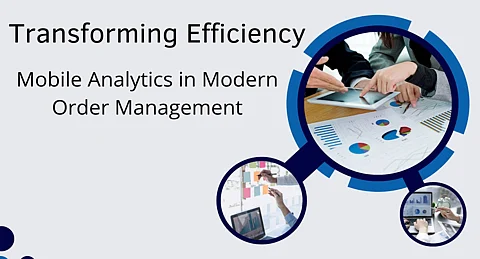

In this digital era, mobile analytics has become a cornerstone of innovation in order management, reshaping how industries optimize efficiency, enhance accuracy, and elevate customer satisfaction. Sai Krishna Paladugu, renowned for his expertise in data-driven solutions, explores the profound impact of these advancements, highlighting their transformative role in revolutionizing retail and transportation operations.
Real-time data processing is at the heart of mobile analytics, which has become indispensable in today’s fast-paced markets. Powered by technologies like edge computing, IoT sensors, and 5G networks, these systems have achieved remarkable precision, with order tracking accuracy reaching 99.9%. Businesses leveraging these advancements have witnessed a 47% improvement in order fulfilment accuracy and significantly reduced delays. These capabilities have set a new standard in operational transparency, ensuring businesses can meet customer expectations quickly and quickly.
Predictive analytics, underpinned by AI and machine learning, reshapes decision-making processes. With predictive modelling accuracy exceeding 96.5%, organizations can forecast demand, optimize supply chains, and mitigate risks with unparalleled precision. These tools have enabled a 72% reduction in order processing times and have drastically enhanced inventory management accuracy by 88%. Businesses can preempt challenges by predicting market trends and customer behaviour, ensuring seamless operations and enhanced customer satisfaction.
Scalability and resilience are critical in implementing mobile analytics solutions, and modern architectural advancements like microservices and serverless computing provide the foundation for such systems. With 94% deployment rates for containerized applications and widespread adoption of API-first designs, organizations have achieved integration efficiencies of 96%. These architectures allow businesses to manage complex workflows effortlessly while maintaining latency under 80 milliseconds, enabling real-time decision-making and uninterrupted operations.
Retailers adopting mobile analytics have experienced transformative outcomes, particularly in inventory management. With innovations such as AI-driven forecasting and real-time synchronization, inventory accuracy has risen from 82.3% to 94.8%, reducing stockouts by 62% and dead stock by 45%. The improvements extend to order fulfilment, where accuracy levels now exceed 99%. Retailers have also reported a 28% increase in inventory turnover, optimizing working capital and enabling rapid responses to changing market conditions. These gains are complemented by enhanced customer experiences, as businesses can reliably deliver the right products at the right time.
Mobile analytics has redefined fleet management and delivery operations in the transportation sector. Smart routing algorithms have driven a 32% increase in route efficiency, while real-time tracking has minimized fuel consumption by 24%. The precision of these systems ensures that deliveries arrive on time with a success rate exceeding 96%. Moreover, businesses have optimized vehicle utilization by 45%, reduced idle times by 52%, and extended asset lifecycles by 25%. These advancements cut costs and contribute to sustainability by reducing carbon footprints by 25%.
The financial uses of mobile analytics demonstrate the business value of the concept and why it should be considered as a strategic imperative. The survey reveals that within three years, organizations experience an average return on investment (ROI) of 315% with annual cost savings of $485000 and revenue increase of 28%. These numbers demonstrate the enormous relative importance of operational improvements and increased customer loyalty facilitated by mobile analytics. Companies implementing these solutions have also realised a shorter time to break even within an average of 12 months; this points to the fact that the implementation of these systems is economically feasible.
The understanding of mobile analytics deployment as a practice entails a strategic, technological, and organisational perspective. They include; sponsorship, digital transformation strategy, and change management. Factors like architecture, improved security measures and also the integration compatibility feature, architectural and technology features determine the reliability and scalability of these solutions. Also, organizations must accompany the launch of the mobile analytics platforms with extensive training programs and user adoption tactics to get the most out of the technology solution.
Mobile analytics has disrupted present-day order management practices and created a base for future technology progression. When a company combines advanced analytics and the Internet of Things with edge computing, companies open up new opportunities for operations and development. It was found that these systems are ready to develop customer experience, costs and market competitiveness.
Sai Krishna Paladugu concludes that mobile analytics represents a pivotal shift in how businesses approach order management. Its ability to enhance operational metrics, reduce costs, and deliver exceptional customer satisfaction makes it an indispensable tool in the digital economy. As industries evolve, embracing mobile analytics will be key to achieving sustainable growth and staying ahead in an increasingly competitive market.
